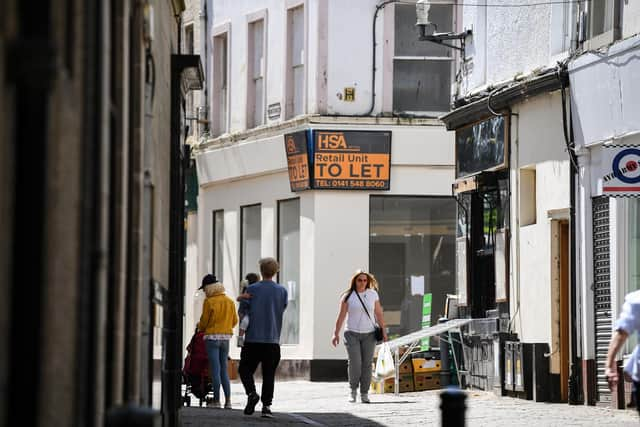Retail trade body calls on Holyrood to ring up Budget measures to help sector 'weather economic storm'
The trade body has sent its Budget submission – titled Weathering the storm: tackling the costs crisis – to John Swinney, Scotland’s Deputy First Minister and interim Finance Secretary, covering for Kate Forbes who is on maternity leave. In the document, the SRC says retailers are working hard to keep down the cost of living for customers whilst themselves battling rising outlays in the face of weak demand.
The organisation states that retail is Scotland’s largest private sector employer, providing 233,000 jobs, but it added that recent data shows retail sales have flatlined in real terms, shopper footfall is “faltering” and remains below pre-pandemic levels, whilst store vacancies are still high.
Advertisement
Hide AdAdvertisement
Hide AdIts 12-page submission comes ahead of the expected publication of the conclusions of the devolved administration’s emergency Budget review and the unveiling in the autumn of its tax and spending plans for 2023-24.
The SRC says it is key that ministers succeed in their plans outlined in the Scottish Spending Review to reduce the cost of doing government, “otherwise taxes might rise and the economy be held back”.
The trade body’s suggestions for Holyrood include protecting less affluent workers by ruling out increases in Scottish income tax rates; considering the introduction a Scotland-wide shopper stimulus along the lines of Glasgow’s voucher initiative; and ruling out any increase in the business rate next spring, “which is already at a 23-year high”.
Also on the SRC’s list of recommendations are speeding up “restoration of the level playing field with England” on the higher property business rate; shelving workplace parking levies for the next 18 months; and curbing the volume of devolved regulation being implemented or considered.


Concerted
SRC director David Lonsdale stressed that retail is again “in the eye of the storm”, adding: “To help Scottish shoppers and storekeepers weather this storm, we are suggesting concerted action to pep up consumer confidence and to cut the cost of doing business.
"It’s imperative the upcoming Scottish Budget is used to bolster shops and shoppers ahead of the economic tempest. In particular, the focus should be on protecting less affluent workers from income tax rises and shielding retailers from a further hike in the business rate.”
The SRC said earlier this month that retail sales north of the Border had flatlined in July, as a modest rise in their value was wiped out by the impact of record rising inflation, and it warned that “it may be a bitter winter for Scotland’s shopkeepers”.
That followed the organisation last month revealing how the overall vacancy rate on Scotland’s high streets came in at 15.7 per cent in the second quarter. Mr Lonsdale at the time said Scotland’s vacancy rate remained above that for the rest of the UK as a whole and “well above” pre-pandemic levels, with flagging footfall and continued hybrid working making it trickier for rates to recover.
Comments
Want to join the conversation? Please or to comment on this article.
